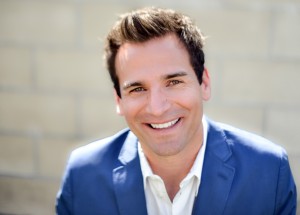I stared out the window of the psychiatric ward in disbelief. My freshman year ended after only two months. I went to American University with so much hope. College was the place where I would move forward with my life, make new friends, and escape my small town. I also hoped to escape the bipolar disorder that plagued me in high school. Instead, I experienced my worst episodes.
I had uncontrollable mind racing thoughts, and binge drank to shut my brain down. Heavy drinking led to hopeless depression, suicidal thoughts, loneliness and hallucinations. Voices told me to hurt myself. Fortunately, I had the awareness to call my parents and tell them I needed to come home.
It took six long years of different colleges, treatment plans and hard work, before I returned to American University to finish my degree. Now, as I travel around the country to speak at college freshmen orientations, I look out at thousands of eager students, and tell them college is a great time to work on their mental health, to grow and learn about themselves. I also want to share vital mental health tips to students returning to class, including:
Change can be a trigger. The first time you’re on your own it can be freeing. But change can also bring out the first episode of a mental health disorder or cause anxiety and nervousness. It’s important to find healthy ways to deal with the change, like talking about emotions with friends and family, writing about it, exercising, or connecting with others.
Get some sleep. Most students don’t sleep enough. Getting more than six hours of sleep helps the brain continue to develop, retain knowledge, and provides better overall health. All-nighters for last minute papers or studying is never more effective than getting enough sleep.
Think about how you cope. How did you cope with adversity in high school? The longer you rely on old coping mechanisms the harder they are to change. Many students cope by isolating themselves, abusing drugs/alcohol, zoning out with TV or video games, or other negative methods. Instead, work on developing healthier ways to deal with life’s challenges.
Have a mental health disorder? Have a plan. Students already diagnosed with a mental health disorder need to know what support you need before going to college. Talk to a mental health professional to learn what resources are available. Check in regularly with family and friends. Make an appointment to learn what’s available on campus. Try to normalize mental health as a part of student life rather than focusing on the mental health disorder.
5. Make Mistakes. Students feel pressured to never mess up or fail, but adversity is part of life and can make you stronger. Mistakes are bound to happen, but the best way to achieve positive mental health is to learn from past mistakes.
About the author:
Ross Szabo is an award-winning speaker, author, consultant, and former Director of Outreach for the National Mental Health Awareness Campaign. Ross co-authored Behind Happy Faces Taking Charge of Your Mental Health, and has spoken to over one million people, including Western New York audiences. A returning Peace Corps volunteer, Ross is currently a speaker for CAMPUSSPEAK. Learn more about Ross at www.campuspeak.com/speakers/szabo.











